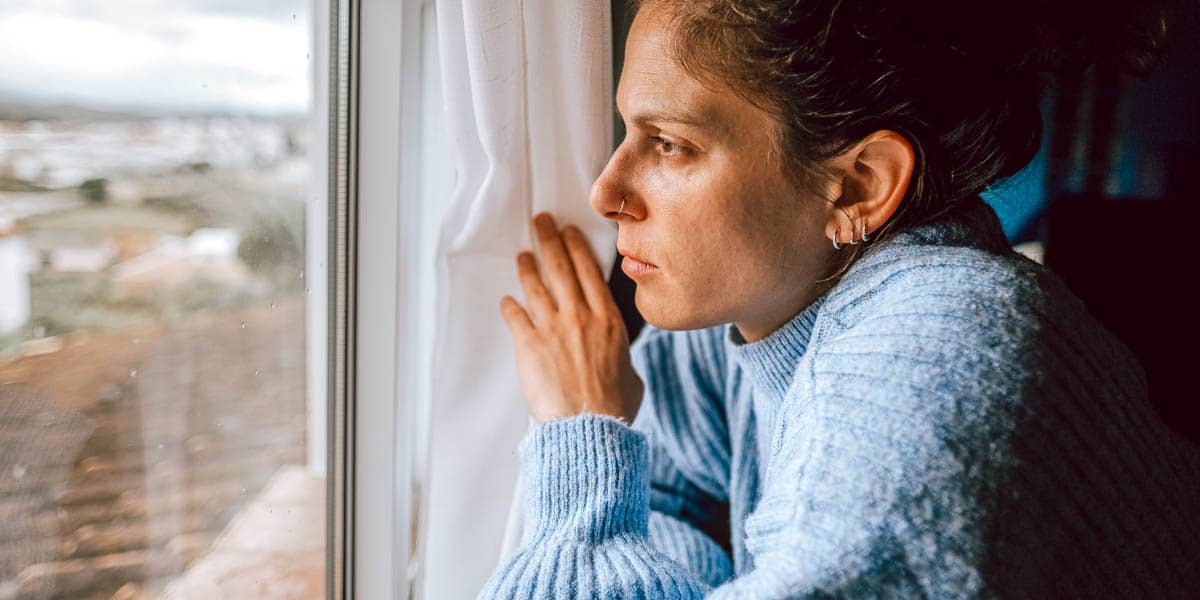How to Cope with Depression after Divorce

Divorce isn’t just the legal end of a marriage. It's the end of a deeply emotional connection between two people. Breaking ties with someone you have loved, who has been an integral part of your life, is a huge life event, no matter who wanted the divorce or how friendly it was.
Feeling sad and lost after divorce is normal, and it will take a while to find your footing again. But when it becomes a more prolonged and enduring sadness, it may be time to examine your emotional health more closely.
Symptoms of depression after divorce
Feeling depressed after a divorce is common. In fact, the psychological distress of divorce is considered second only to what people feel after the death of a spouse. Post-divorce, you may find that you are:
- Feeling overwhelmed, guilty, angry, sad, or just numb
- Experiencing bouts of crying
- More reactionary than usual
- Unable to focus or concentrate
- Tired but unable to sleep
- Sleeping too much
- Not eating and losing weight
- Overeating and gaining weight
- Losing interest in things you used to enjoy
- Isolating yourself from others
Divorce-related depression is usually considered situational depression, meaning it results from a specific situation – in this case, the divorce process and its outcome. And while these feelings are never pleasant, they’re reasonable considering the circumstances, and they’re usually temporary. Generally, once the situation resolves, so does the depression.
But sometimes, the passage of time isn’t enough. Depending on the person, post-divorce depression can linger and become more serious if it’s not addressed.
What causes depression after divorce?
A divorce can leave you navigating emotional stages similar to what you would experience when grieving the death of a loved one. In fact, you might bounce from one emotional stage to another and back again. Whether it was expected or came completely out of the blue, it’s a significant loss, and dealing with the impact of divorce can make you feel like you’re riding an endless roller coaster.
After your divorce, you may feel relieved at one moment and afraid of your future the next. You may feel devastated but also relieved. Few life situations bring the overwhelming and often contradictory feelings that a divorce conjures, and it may leave you trying to piece together a new identity and life on this shifting sand.
While it may sound easy to take the stance of “this too shall pass,” everyone navigating divorce will move forward in their own way and at their own pace. Whether it takes days, weeks, or months, it’s important to give yourself the time, space, and self-care as you heal.
How serious is my post-divorce depression?
While suffering from some post-divorce depression is normal, it can be difficult to tell when your depression has become something more, especially when you’re in the middle of it. Depression differs from person to person and even between men and women. If you find yourself stuck in a downward spiral and feeling hopeless or suicidal, it’s important to speak with someone who can help.
Mental health providers deal with depression every day and know what to look for. A diagnosis of a major depressive disorder can be made if you’ve experienced five or more symptoms of depression for a prolonged period of time. But you know yourself better than anyone. If you’ve been having suicidal or other self-harm thoughts or are self-medicating with alcohol or drugs that could put yourself or others at risk, it’s important to be honest and open so you can get the help you need.
988 Suicide & Crisis Lifeline: You can dial “988” or, if you prefer, you can dial 1-800-273-TALK (8255).
Depression in children
You may not be the only one dealing with the effects of divorce. Depression can also affect children.
- Younger children won’t be able to process or verbalize their feelings, while older kids often internalize their feelings because they don’t want to further stress their parents.
- Younger children may become more needy and afraid to be separated from you, and school-aged children may exhibit behavioral issues at home or school.
Adolescents may completely withdraw from family life.
Read: How Do I Know If My Child Is Depressed?
It’s important to talk to your kids and seek help for them as soon as possible so they can understand their stressors and deal with their own feelings about your divorce.
How to cope with depression after divorce
Post-divorce depression is common. Consider the fact that you’re letting go of a major part of your life. Everything about your life is changing, and you may feel lost and in limbo for a long while. Fortunately, there are some healthy coping mechanisms that can make moving forward easier.
- Get professional help or support. Most of us benefit from getting outside help at some point in our lives. Whether you choose to talk to a mental health professional, hire a life coach, or join a support group of others who are right there with you, verbalizing your feelings and knowing you’re not alone can make all the difference when you find yourself in a sad place.
- Accept that what you’re feeling is normal. You wouldn’t be human if you weren’t feeling some sense of sadness and grief after your divorce.
- Allow yourself time. There is no time limit on grief. You are grieving the loss of a marriage, just as you might grieve the loss of a loved one. Give yourself all the time you need.
- Exercise and focus on your health. At times like this, the last thing you may want to do is eat a healthy diet and get some exercise. But focusing on your health will help you sleep and feel better, and the better you feel about yourself, the more optimistic you will feel about your future. Exercise helps produce endorphins, which are “feel-good” chemicals in the brain. These can help give your self-esteem a well-deserved boost during difficult emotional times.
- Learn to meditate. Meditation can help you change how you think about and process life. By training yourself to let thoughts come and go without reacting emotionally, you can gain a new sense of how to manage many stressful situations throughout life.
- Try to stay social. You may not feel like socializing when you’re in the throes of depression, but isolation can cause depression to feed on itself. Even if social encounters seem like a chore right now, force yourself to leave the house and get some social support from people who are patient and understanding about what you’re going through.
- Read some good books. When we’re going through stressful times, reading a good book that can help us gain clarity and a healing perspective on our situation is invaluable.
Read: Tips for Better Sleep
If you feel depressed after your divorce, you’re not alone. The aftermath of divorce is difficult for most people, and many find themselves suffering from some symptoms of depression during or after their divorce. With the right support and coping strategies, however, you can not only survive but thrive after your divorce. Be kind to yourself, and give yourself the gift of self-care and self-kindness.
At Hello Divorce, we offer resources, support, and services that can help you move on after divorce. Want to know more? Follow us @hellodivorce on Instagram.

Ready to re-discover yourself with coaching or therapy?
Our FREE checklist can help you find the right fit.
Download our checklist of questions to ask a potential therapist or coach today.



